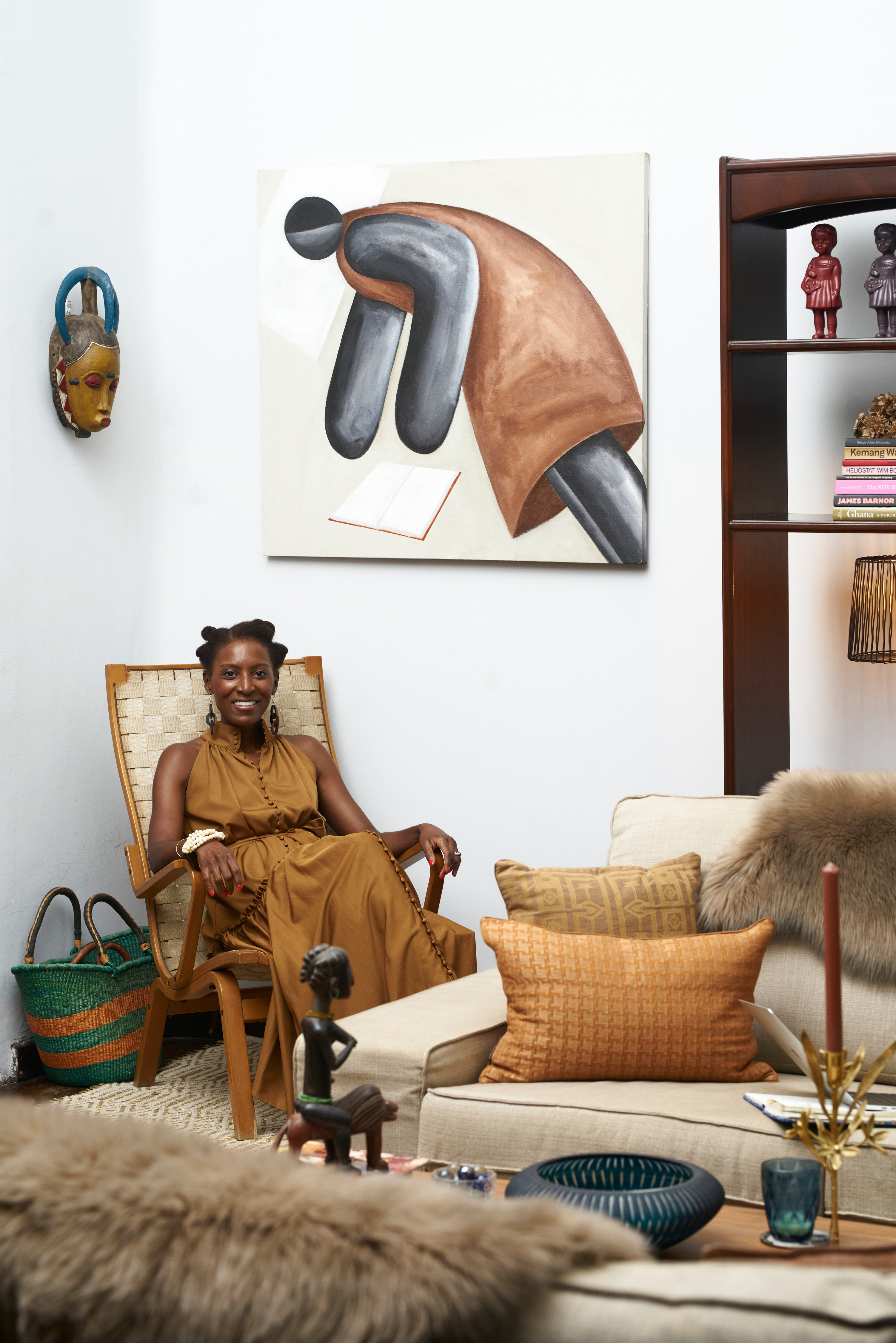
It was while walking along the National Mall in Washington, D.C., in 2013, enchanted by the National Gallery of Art and the many monuments that line the capital’s long, grassy park, that Nish McCree decided to realize her childhood dream of building an art collection.
Considering her grand inspiration, it is perhaps not surprising that McCree’s holdings, now numbering around 80 works, are less about private pleasure than about public mission: to support artists as a means of achieving social and economic growth in Ghana, where she now lives, and on the wider African continent.
A 2018 painting by Amoako Boafo from McCree’s collection. Courtesy of Nish McCree.
Over the past eight years, the Alabama born international-development professional has built a vibrant and powerful collection of contemporary art that includes portraiture, collage, and masks, with a particular focus on African female artists. She also has a knack for identifying talents before they hit it big: she managed, for example, to buy a work by Amoako Boafo in 2018 before his first major solo show, with Roberts Projects in L.A.
Growing up as a Black woman in the United States, “I always knew I wanted to live on the continent and experience the origins of my African American heritage,” McCree said. After living in Tanzania on and off for 10 years, in 2018 she moved to Accra, where she continues to work in international development and collects with her husband, lawyer Ofotsu Tetteh-Kujorjie.
Anya Paintsil, For Efia – Feeling Powerful With My Red Nails (2019). Courtesy of Ed Cross Fine Art.
Over the past year, she has become particularly interested in mixed-media artists who use found and natural materials “ubiquitous within the African context,” such as coconut-tree bark, traditional African fabric, cocoa jute sacks, and plastic and recycled materials. Recent acquisitions include works by Ghanaian Welsh textile artist Anya Paintsil, Rwandan Ugandan multimedia artist Collin Sekajugo, and Ghanaian artists Adjei Tawiah, Aplerh-Doku Borlabi, and Rufai Zakari.
In the absence of significant state funding for arts and culture, McCree noted, much of the scene in Africa is characterized by artists supporting other artists, sharing studio spaces, and even collecting one another’s works. In the same spirit, in July she launched the Cowrie Culture, a digital art advisory with a mission to nurture Africa’s art scene. Through the platform, she aims to provide art education programs and professional development for artists, collectors, and cultural tourism professionals.
A work by Adjei Tawiah. Courtesy of Nish McCree and Nii Odzema.
While McCree’s ambitions remain global (in addition to inspiring others based in Africa to collect, she is also open to lending her works abroad), her first role model for collecting was close to home. Her grandmother had an innate ability to decorate her home in Citronelle, Alabama, with folk art, jewelry, and other keepsakes. “I wanted,” McCree said, “to one day also live amidst a treasure trove of beautiful things, honor them, and have them be a part of every day.”
A version of this article appeared in the fall 2021 Artnet Intelligence Report, available in full exclusively to Artnet News Pro members. To read more about the art collectors shaping the future, the tech tools poised to revolutionize the art world, and how much money NFTs are actually making for auction houses, download the full report here. If you aren’t yet a member, you can subscribe here.